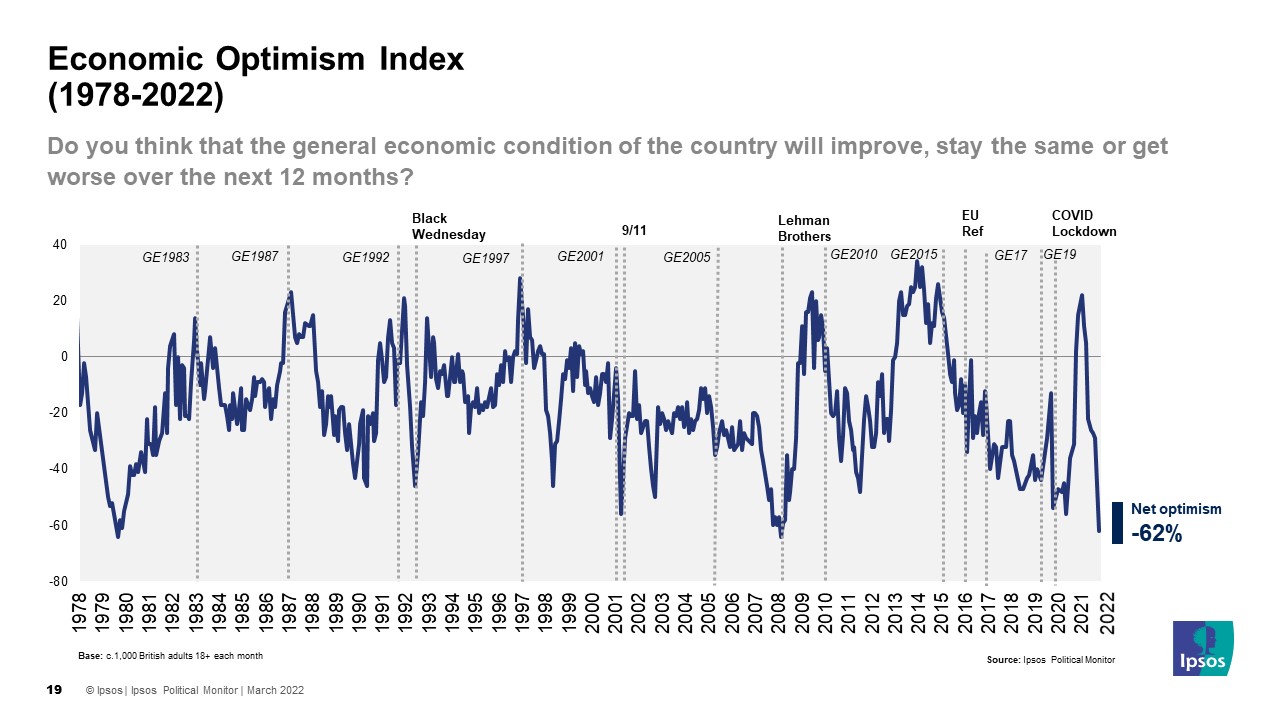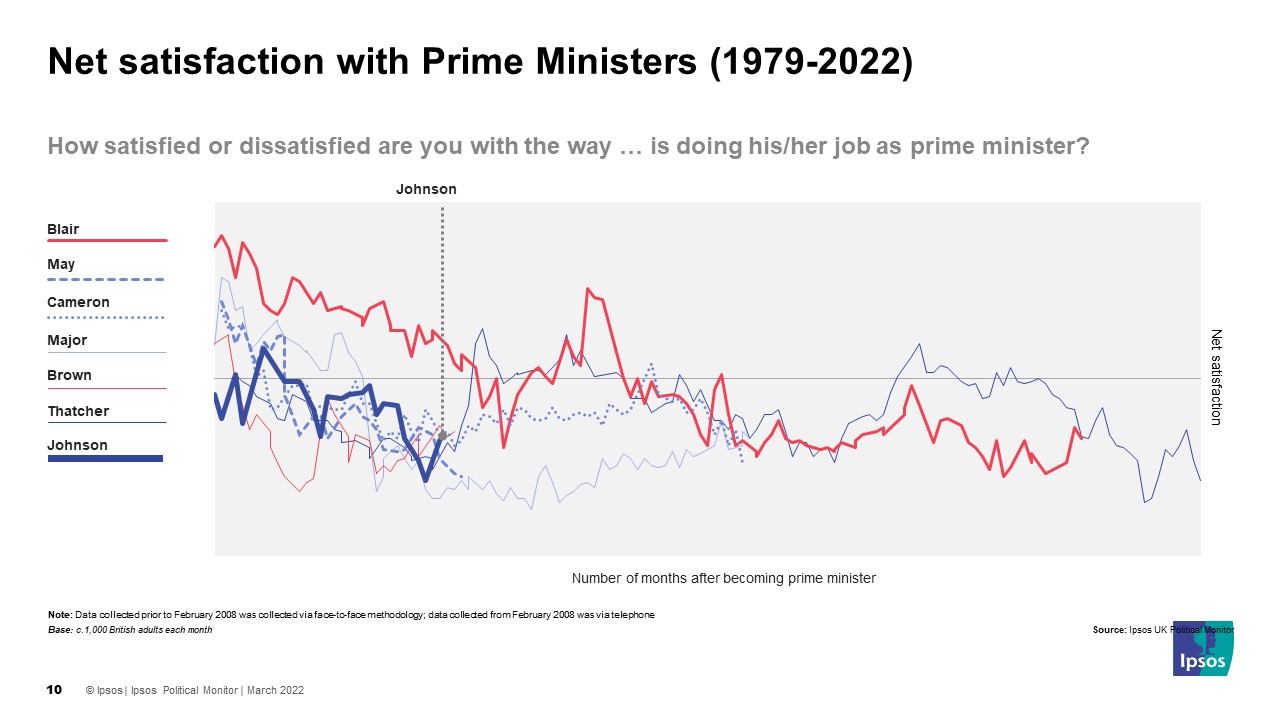Ipsos poll shows economic optimism falls to lowest since 2008 financial crash
Three in four (76%) expect the economy to get worse over the next twelve months.
- 76% think economy will get worse in the next 12 months. This matches the worst ever levels in 44 years of tracking (in 2008 and 1980).
- Boris Johnson’s leader ratings recover to pre partygate levels, but 6 in 10 still dissatisfied.
- Labour retains 4 point lead (down from 9 points in January)
Economic optimism
- 76% think the economy will worsen in the next 12 months (+20 points from January), 14% think it will improve (-13 points from January).
- This gives an Ipsos Economic Optimism Index of -62, the worst score since July 2008. In January it was -29.
- Economic optimism is weaker than at the start of the COVID-19 pandemic. 69% expected the economy to worsen over the next year in March 2020. It is also weaker than October 1992 when it stood at 60%. The only times Ipsos has recorded similar levels of economic pessimism are January 1980 (74%) and July 2008 (75%).

Leader satisfaction
- Prime Minister Boris Johnson’s satisfaction ratings have improved from his record low last month.
- 31% are satisfied with the job Mr Johnson is doing as Prime Minister (+7 points from January) and 59% are dissatisfied (down 11 points). In November – before the partygate story broke – his scores were 34% satisfied and 61% dissatisfied.

- 67% of Conservative supporters are satisfied with the job Mr Johnson is doing (+10 points from January) and 26% are dissatisfied (down 8 points).
- Ratings for the government as a whole are identical. 31% are satisfied (+6 points) and 59% dissatisfied (- 8 points).
- Meanwhile, 33% are satisfied with the job Keir Starmer is doing as Labour leader (unchanged from January) and 43% are dissatisfied (down 5 points).
- Keir Starmer’s ratings amongst Labour supporters have improved this month. 58% are satisfied with the job he is doing (+3 points) and 26% are dissatisfied (- 8 points).
- Meanwhile, Lib Dem leader Ed Davey remains something of an unknown with the British public as half (50%) say they don’t know whether they are satisfied with the job he is doing or not. 22% are satisfied and 28% dissatisfied.
Handling of the Russian invasion of Ukraine
- 46% are satisfied with how the government is handling the Russian invasion of Ukraine, with 38% dissatisfied.
- This is slightly better than how the government were deemed to be handling the crisis in Libya in March 2011 (42% satisfied / 42% dissatisfied).
- But 64% were satisfied with how the government were handling the situation in the Gulf in January 1991 and Mrs Thatcher’s government hit highs of 84% satisfied for its handling of the Falklands war in May and June 1982 (although 60% were satisfied when the war began in April 1982).
Voting intention
- Labour are on 39% (down 1 point from January) and the Conservatives are on 35% (+4 points). The Lib Dems are on 10% (down 3 points) and the Greens are on 7% (down 2 points).
Gideon Skinner, Head of Politics at Ipsos in the UK, says of the findings:
Amidst public concerns about the rising cost of living and the impact of the war in Ukraine, economic optimism has dropped sharply amongst all groups (including Conservative supporters). It is now comparable with the worst scores we have ever recorded in over 40 years – worse than at the start of the pandemic and during Black Wednesday, and only matched by the very high levels of pessimism during the summer of 2008 and at the start of 1980. So although there is some good news for Boris Johnson and the Conservatives, who see some recovery from their own low scores at the start of the year, the amount Britons are worrying about the future means they still face challenges ahead.






